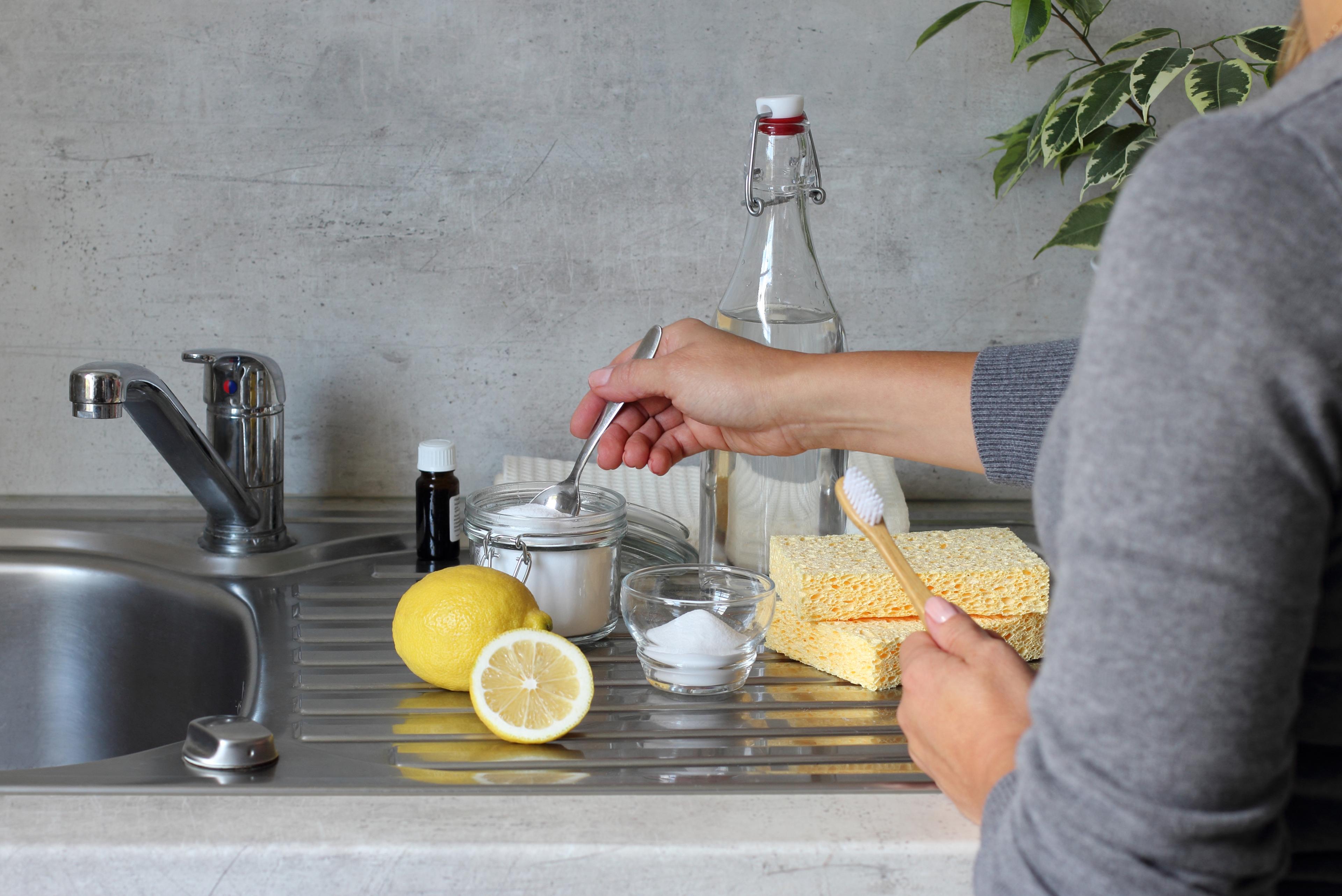Natural Home Cleaners You Can Make Yourself
Shandra Martinez
| 3 min read

Some people love to keep a big selection of store-bought cleaning products in their cupboards. They select sprays, liquid cleaners, disinfecting wipes and even scouring powders to tidy their bathrooms, kitchen and other rooms in their home. They even buy cleaners in an array of fragrances, some concentrated enough to double as air fresheners. But there’s also been a growing movement focused on natural home cleaners you can make yourself. If this sounds like something you’d like to try, we’re sharing a few recipes to get you on the path to natural cleaning.
Decades ago, do-it-yourself cleaning products were the norm. Kitchen staples like white vinegar, baking soda and lemon juice did double duty as cleaning products used throughout the home. These days, people mixing up natural cleaning products still rely on those basic ingredients, but the recipes have become a little more sophisticated.
Natural home cleaning products will help you keep surfaces in your home clean. This means wiping away dirt, oils, grime and most germs. However, if you want to disinfect a surface to kill all the germs, a chemical-based cleaner is the most effective product for that task, according to the Centers for Disease Control and Prevention. That’s why people who use natural cleaning products still may keep a few chemical-based cleaners on hand to thoroughly disinfect some areas.
People make and use natural home cleaners for a variety of reasons. They may be allergic to harsh chemicals or heavy fragrances. They may want to steer clear of chemicals when possible and use more environmentally-friendly products inside their homes.
To make your own cleaners, you can buy new spray bottles or use empty spray bottles you may have around the house. If you are reusing a spray bottle, make sure it has been emptied, washed thoroughly and dried before putting your new mixture into it.
Here are some basic natural home cleaner recipes:
Window Cleaner. Better Homes and Gardens shares this ingredient list for their Best Homemade Window Cleaner:
- 2 cups distilled water
- ½ cup distilled white vinegar
- 10 drops essential oil (this is optional)
Mix the ingredients in a spray bottle. Spray on glass surfaces and wipe dry with a lint-free cloth, paper towel or newspaper.
All-Purpose Cleaner. If you prefer a scented cleaner, you can add in a sprig of rosemary, some lemon rind or even some orange peel.
- 2 cups white vinegar
- 2 cups water
Mix in a spray bottle and add the citrus rind or herbs if desired.
Heavy Duty Stain Scrub. Get rid of tough stains in bathtubs or porcelain sinks with this stain scrub recipe from Good Housekeeping:
- ½ cup Borax powder (found in the laundry aisle of your grocery store)
- ½ lemon
Dip the cut lemon into the Borax powder, then scrub the stained area with it. Rinse and repeat if necessary.
De-Greaser. Go after greasy stove tops and oven racks with this 2-ingredient mixture.
- 1 gallon warm water
- ½ cup sudsy ammonia
Mix together and tip a sponge or cleaning cloth into the mixture. Wipe off stove tops, burners and oven racks with it, then rinse them clean and dry them.
Kitchen Deodorizer. Use this solution to clean out refrigerators, cabinets and countertops. Then pour it down your drain for a freshen-up.
- 4 Tablespoons baking soda
- 1 quart warm water
Mix and use immediately. If surfaces feel gritty, wipe them with a damp cloth.
Photo credit: Getty Images





